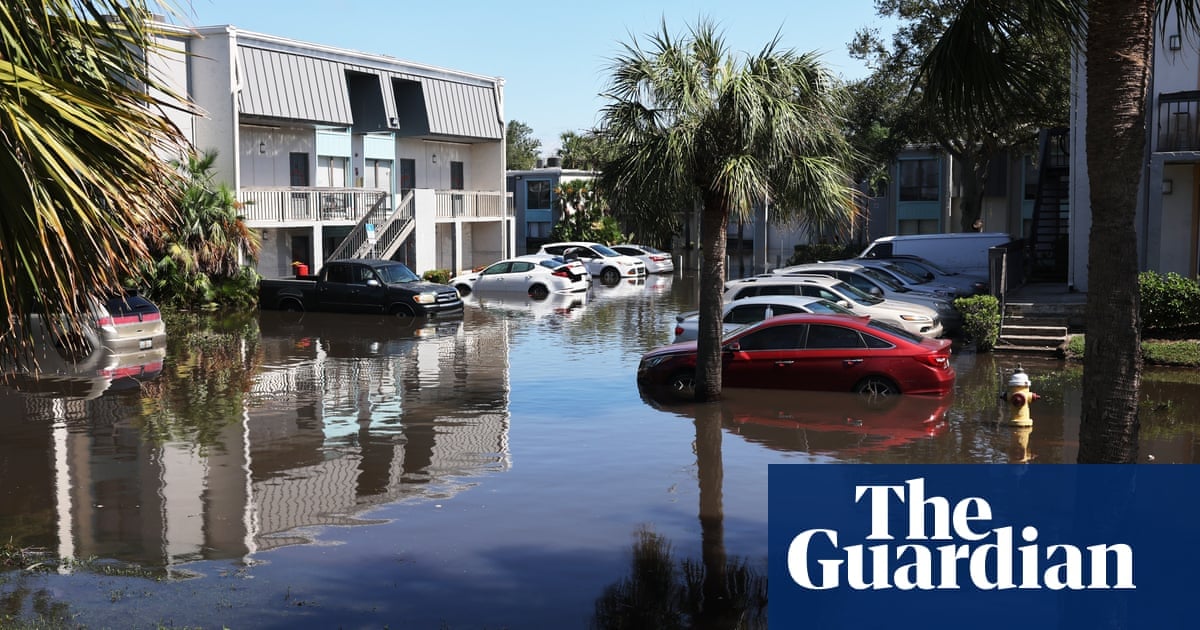Flooding is separate from typical US home insurance and many homeowners are not adequately covered
As millions of US residents begin working to file insurance claims on their homes in the aftermath of Hurricanes Helene and Milton, many could be denied, particularly if their homes were damaged by flooding.
A quirk in the US home insurance market is that flood insurance is separate from typical home insurance, which usually covers wind damage from hurricanes but not flooding. Homeowners must purchase flood insurance separately if they want their homes protected against flooding.
And many don’t. In some areas where Hurricane Helene hit the hardest, less than 1% of homes had flood insurance when the storm hit. In Buncombe county in North Carolina, home to Asheville, only 0.9% of homes had flood insurance, according to data from the Insurance Information Institute.
The number of people with flood insurance in Florida, which was hit by Hurricane Milton two weeks after parts of the state were battered by Helene, is higher than in other parts of the country. But still, the take-up is low. In Sarasota county, which took a direct hit from Milton, just 23% of residents have flood insurance.



Insurance companies have a conflict of interest inherent in their business model. They make money by taking your money up front and then paying you back as little as possible at a later date. Any way to weasel out of paying up, especially in a big event like a hurricane, is a huge money saver for them. And most people are desperate. Their house is gone. They aren’t in a position where they can argue and sit on the phone for hours and work it out.
And then, even if they do pay out, they just jack up your rates to make it all back. That’s if they don’t just drop your coverage completely.
Also as soon as they pay you out they either jack up the rates to recover what you paid or drop you entirely as you’re no longer profitable. It’s such a massive conflict of interest
That’s not entirely the case. Typically, there is a lag (of a few years) between the payment of premiums and the paying out of claims. Insurance companies invest the premiums in the meantime and profit off the interest/gains from these investments (called the “float”). Well-run (and well-invested) insurers can actually collect less in premiums than they pay out in claims and still be profitable.